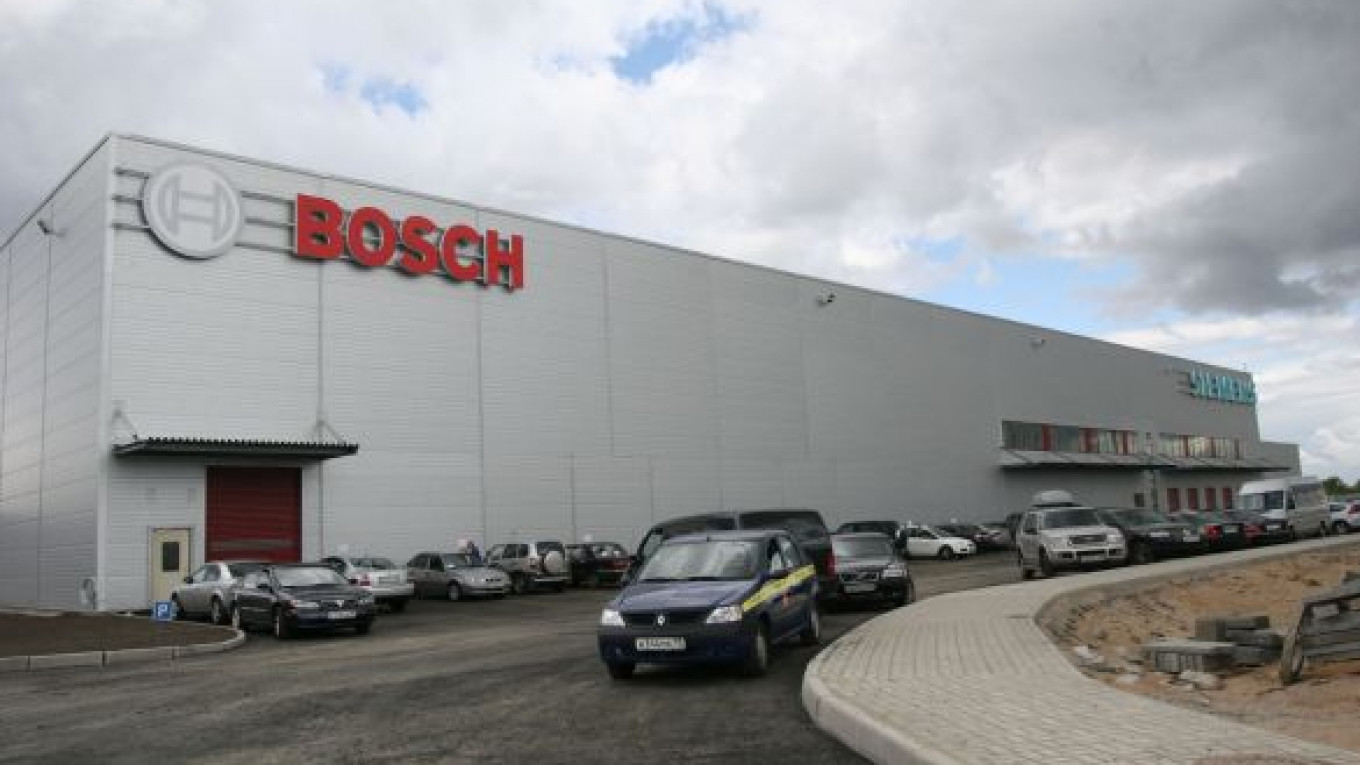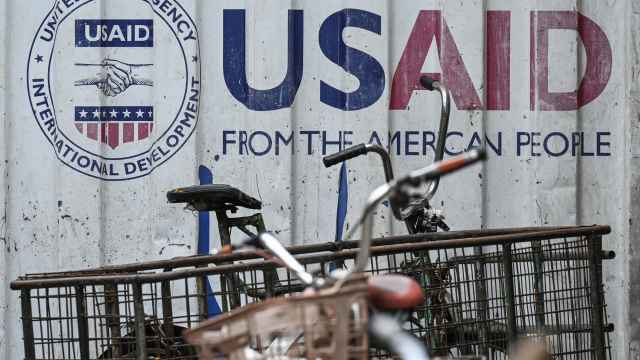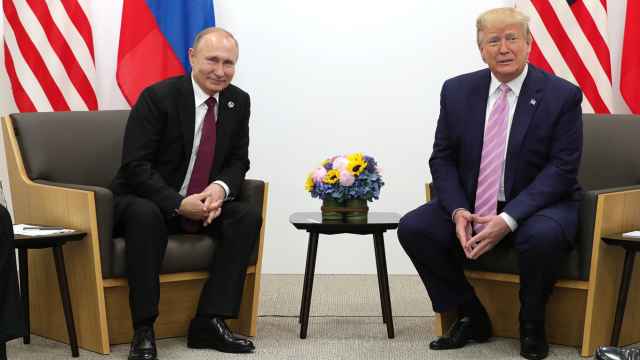When Renault Trucks began production at its Russian plant last year, it was a challenge for the company to sell the vehicles that came off the line to other former Soviet markets just across the border. Customs barriers that split up a once-monolithic Soviet economy made it easier to ship the same products all the way from France.
That has changed for Belarus and Kazakhstan as they created a customs union with Russia, a group that earned the label "Soviet Union Lite." The trio — which represents most of the former superpower's landmass, economy and population — abolished all mutual customs formalities of July 1, allowing the products that foreign companies manufacture in one of the member countries to move around the entire customs union duty-free.
Renault Trucks has moved to capitalize on the opportunity because sales from its Russian plant to Belarus and Kazakhstan enabled it to save on duties for importing the same trucks from France.
"It's of course more profitable," said Alexei Sharapanyuk, the automaker's business development director in Russia. "It makes the costs lower and the profit margin larger."
Shipping trucks to Kazakhstan and Belarus from France results in a 25-percent customs duty, while making them in Russia involves an average duty of 7 percent for importing their components, he explained. Between Russia and Belarus, customs clearance mostly became history last year, a few months after Renault Trucks began producing in Russia.
Prime Minister Vladimir Putin has lauded the customs union as the most remarkable attempt to rebuild economic ties severed by the Soviet breakup. A chorus of economists have also extolled the idea. According to senior executives at several Western companies active in Russia, it appears that at least some of the panegyrics have a basis in reality.
Of course, Belarus and Kazakhstan represent just a fraction of Russia's potential in terms of sales: They together account for 25 million people, or just under a third of Germany's population. The entire customs union numbers 165 million residents, or about 60 percent of the population of the Soviet Union.
The countries are also diverse economically. Russia and Kazakhstan have conducted capitalist reforms and enjoy the backstop of windfall oil export revenues, while Belarus has maintained a largely Soviet-style economy that collapsed into crisis earlier this year.
IMPORTS REDEFINED
For German industrial conglomerate Robert Bosch, the creation of the customs union was a boon because it made some of its equipment more affordable to customers in Russia, said Lutz Marschall, the company's sales director for power tools in the former Soviet Union. Member countries agreed on a unified foreign trade policy, which caused Russia to slash import duties on power tools to 10 percent from 15 percent as of January 2010.
"It has a major effect," he said. "It has an impact on the price."
Belarus cut the duty similarly, while Kazakhstan — where Bosch's sales are only about 1.5 percent of those in Russia — raised the duty to 10 percent from zero.
Cheaper entry into the Russian market means more business for Bosch, which imports more than three-quarters of the power tools it sells here — the rest are produced locally, Marschall said. The lower import duty is part of the reason why the company, including its other divisions, increased sales in Russia by 36 percent last year.
Some decisions on duties did not come easy. Russia pushed hard to finally convince Belarus and Kazakhstan to match its prohibitive duties for motor vehicles, thus likely dampening imports into those countries from the rest of the world. While companies like Renault Trucks have the chance to offset the potential damage with sales of made-in-Russia products, some exporters may have winced at the change. The international press office of U.S.-based carmaker Chrysler Group, which does not produce in Russia, did not respond to questions on the effects of the customs union.
Russia's policy of extremely high import duties on motor vehicles has prompted numerous foreign automakers to set up production facilities in the country to cater to the sector's second-largest market in Europe.
GOING ONLINE
Zentis, the German producer of jams, fruit preparations and sweets, has identified the biggest effect of the customs union as the transition to paperless clearance by the Russian Federal Customs Service. As of January, companies no longer have to provide paper documents to back up their electronic customs declarations.
Johannes Peter Schoenhuber, Zentis chief executive for Russia, attributed this to the imminent competition between member states for customs-related businesses, saying it was a powerful motive for Moscow to clean up its act.
"Russia had long wanted to do this, but the customs union finally made it happen," Schoenhuber said. "For us, customs is of key importance."
Belarus leads the way in the matter of electronic declarations, while Kazakhstan is the trio's laggard.
In another customs union-related improvement, from now on Bosch will need only one safety and one quality certificate — valid in all three countries — instead of three for each market. This could expand the selection of Bosch products in the smaller markets of Kazakhstan and Belarus, where certification could have previously been hardly worth the effort, Marschall said.
"I would think, 'How many of these can we sell? Is it worth applying?'" he said. "If there's no need for separate certificates, it's better for business."
ACROSS INTERNAL BORDERS
When it comes to imports, there is at least one pitfall that prevents businesses from treating the customs union as a single market — and it is not related to customs per se. The differences in value-added tax rates prevent imported goods from traveling around member countries freely, Schoenhuber said.
Many foreign companies that import to Russia and have a warehouse here would love to use it as a base for deliveries across the entire customs union, particularly to Kazakhstan that lies further east — but the prospect has so far fallen by the wayside because there are no clear rules for receiving VAT refunds from Russia's Federal Tax Service, he said. The VAT rate is 18 percent in Russia, compared with 12 percent in Kazakhstan.
"It's not profitable as yet," Schoenhuber said of shipping Russian imports from its warehouse near Moscow on to Kazakhstan, adding that exports to Kazakhstan still come directly from Germany.
Belarus, which has a VAT rate of 20 percent, also remains a separate destination for many exporters because it is sandwiched between the European Union and Russia.
Once the three governments iron out the VAT wrinkle, new vistas will open for companies like Zentis and Bosch.
It takes four weeks for a power drill to reach a dealer in Kazakhstan from Germany under the current arrangement, said Bosch power tools sales director Marschall. From a warehouse in Russia, that drill could arrive at its destination in less than a week, he said.
"The customers, dealers and users would get better service," he said. "If your customers are happy, they will buy more from you."
Moving imported products from Russia back westward to Belarus — should a Russian client refuse delivery — appears to be less of a headache, according to Sharapanyuk at Renault Trucks. Radoslav Vojnovic, chief of operations in Russia and Belarus at the Swedish industrial group Atlas Copco, said the customs union made it possible for the company's compressors and mining and construction equipment to reach their Belarussian distributor as quickly as overnight from a central warehouse outside Moscow. Before, internal customs offices held up the effort for as long 10 days, he said.
"Belarus is practically the same market for us," Vojnovic said.
Despite the customs union, Atlas Copco views Kazakhstan as part of a different group of countries. Its office there gained independence from the Russian regional headquarters to have authority over the entire of Central Asia. At the moment, "we don't see a big benefit in reorganizing again," Vojnovic said.
FEAR OF FAKES
The customs union did not come without raising some concerns. For Bosch, one of the downsides could be the need to compete with counterfeit products that Central Asian markets, including Kazakhstan, are teeming with.
"There's more fakes in Kazakhstan than Russia," Marschall said. "My concern is this will spill over into Russia now that there are no internal borders."
The loosely regulated open-air markets here may well experience an influx of phony power drills and other equipment. "I don't see sufficient initiatives to control these markets," Marschall said.
The world's longest continuous land border separates Russia and Kazakhstan.
TEPID RESPONSE
Some companies, including those from Germany — the biggest exporter to Russia — have been tepid about the customs union. One of the world's leading manufacturers of pumps, valves and related systems, Germany's KSB, remained "unaffected," Jürgen Sand, chief of the company's Russian office, which also answers for Belarus and Kazakhstan, said through an aide.
The Russia chief for Wirtgen, the German producer of road construction machines, had "nothing to say," his aide said. Lilia van Riet, a German spokeswoman for the company's international division, said: "Unfortunately, we don't have any experience with the customs union of Russia, Belarus and Kazakhstan because we deliver our product directly from Germany."
U.S.-based aluminum producer Alcoa, which operates factories in Russia, did not respond to a request for comment, neither did carmakers Volkswagen and Ford, although both also run plants in Russia.
INCREDIBLE SPEED
The governments of the union have to deal with other ongoing regulatory gaps. Renault Trucks said the need to obtain type approval, a kind of certificate for trucks, separately in every customs union member remained a problem.
"This requires additional money," Sharapanyuk said.
Legal lacunas have also prevented logistical benefits of the integration — which cements 82 percent of the former Soviet area — from fully bearing fruit.
"We often have to contact the highest customs authorities and wait for clarifications and instructions," said Mikhail Kozlov, customs services chief at Swiss-based logistics company AsstrA.
This confusion is likely a side effect of the breakneck speed of the integration effort — it took just over three years to complete the creation of the customs union from stating the intention in 2007. Still, many experts and business executives, such as Schoenhuber, the head of Zentis in Russia, regard the rapid progress as a pleasant surprise.
"We are more used to things getting started and never being completed," he said. "As we see, that is changing."
A Message from The Moscow Times:
Dear readers,
We are facing unprecedented challenges. Russia's Prosecutor General's Office has designated The Moscow Times as an "undesirable" organization, criminalizing our work and putting our staff at risk of prosecution. This follows our earlier unjust labeling as a "foreign agent."
These actions are direct attempts to silence independent journalism in Russia. The authorities claim our work "discredits the decisions of the Russian leadership." We see things differently: we strive to provide accurate, unbiased reporting on Russia.
We, the journalists of The Moscow Times, refuse to be silenced. But to continue our work, we need your help.
Your support, no matter how small, makes a world of difference. If you can, please support us monthly starting from just $2. It's quick to set up, and every contribution makes a significant impact.
By supporting The Moscow Times, you're defending open, independent journalism in the face of repression. Thank you for standing with us.
Remind me later.






